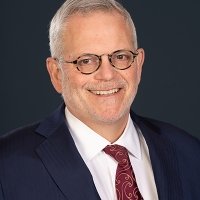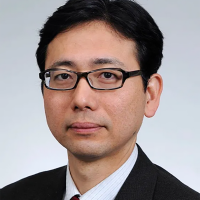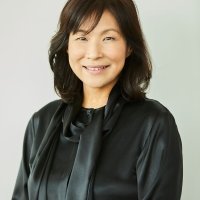An Updated Approach to Capitalism: New Opportunities for Japan-U.S. Cooperation
Since taking office in October 2021, Prime Minister Fumio Kishida’s economic priority has been to revisit capitalism and restore public confidence in democracy. By updating capitalism in a post-COVID world, Japan looks to bolster relations with the United States to address some of the world’s most pressing economic issues including supply chain resilience and sustainable growth.
This discussion focused on the Kishida administration’s new economic agenda and prospects for cooperation between Japan and the United States bilaterally and across the Indo-Pacific.
Selected Quotes
Noriyuki Shikata
“Murakami talked about climate and energy-related issues, and this could be the area where there could emerge a very active collaboration between the United States and Japan. We wish to ensure a sustainable economic growth with energy security in the Asian region. And PM Kishida is trying to establish an Asian zero emission community that will take the lead in decarbonizing the carbonization technology standard and international quality infrastructure development with other Asian countries. Unless we address the challenges facing the mega cities in Asia or India, we will not be able to address climate change challenges.
So, we will be engaging with an initiative called Asia Energy Transition Initiative. There are newly established Asia CCUS networks (Carbon Capture Utilization Stories) to support ASEAN countries and we will be making the best use of joint crediting mechanism (JCM) to transfer the experience in Noha and domestic cities in building decarbonized cities to developing countries in Asia.
Of course, this involves the need for quality infrastructure, and this is the area where there will be a joint venture between the United States and the Japanese companies. We don’t intend to—as governments—excessively intervene into the private sector activities. The aim is to just create environments for more investments, including American investments for Japan. And there’s already a program called JUCEP (Japan-U.S. Clean Energy Partnership) and if we could deploy these activities to the rest of the Indo-Pacific region, that would be great.
And just let me give two examples, there is an organization called PICHTR (Pacific International Center for High Technology Research) in Hawaii and Japan’s OIST (Okinawa Institute of Science and Technology) have been engaging between themselves for deployment of clean technologies, clean energy technologies, including to South Pacific Island nations. So, this is one example, and another example is under the Kishida administration, there is more interest in the U.S. technology of small modular reactors (SMRs) and nuclear fusion. And the Japanese company IHI has invested in Oregon’s new scale power and there is a potential for Japan-U.S. collaboration in this and very lastly, we have already seen the initiatives of a carbon neutral port in LA—Long Beach Port. And this is again, the efforts to introduce hydrogen trucks, with an American company called Kenworth and we are seeing emerging collaboration. And these kinds of solutions could also be used to other Indo-Pacific regions.”
Katherine Monahan
“The first thing I can say is that the U.S. is present and accounted for in the world and in the Indo-Pacific on the economic front. We are engaging in every way with Japan, and we understand very clearly what it means when China applies for the CPTPP. We’ve heard from Japan and other countries how important it is to maintain the rules-based economic order in the Indo-Pacific and in the world. And we understand that absolutely. We are engaging in every possible way to do all the things we have been talking about all day: ensure the free and open Indo-Pacific, to counter the malign influences in the region and those who would change the status quo in the region.
Specifically, for example on quality infrastructure development, we are working very closely with Japan on rules for transparency and lending practices. That is very important, and Japan has been a champion of making sure that China and other countries don’t sign agreements with developing countries that are not transparent and that dig them into debt or other undesirable effects for the world.
We’re engaged now with, as I mentioned, the Indo-Pacific economic framework and our new epic. These are platforms where we can talk about all of the issues. There will be lots of engagement by Commerce and USTR in the IPEF and also Commerce is co-leading the epic. This is an opportunity for all of you to weigh in and help us use the tools that we do have and acknowledging what we don’t have right now with TPP. But thinking about what other things we can do on the digital front of course on the climate front with climate and energy and we are engaging, we have JUCEP, many other U.S.-Japan, and other international fora. We’re about to chair APEC (Asia Pacific Economic Cooperation) coming up so there are things we can do there."
Yumiko Murakami
“There are several areas where I can certainly envision very clear benefits if U.S. and Japan work very closely. The first one that is very clear to me, in terms of what we can do between these two countries, is definitely zero carbon or climate change, and more specifically in the context of rule-making, whether it’s about ESG investment standards, which is something that I’m very involved in terms of ESG investment in Japan. This means accounting and information disclosure discussions, which have been driven mainly by the EU up until this point. Or perhaps funding issues for developing countries when it comes to climate adaptation, which is a very contentious issue. But if youth in Japan can collaborate strategically on these issues, I believe we can potentially expect very meaningful and impactful outcomes in these negotiations.
As I have mentioned, the EU has played a very critical role shaping these rules and treaties, and this is certainly not a competition as climate change is a global agenda. But because it is such an important global agenda, I believe that collaboration between Japan and the U.S. will be important to advance this agenda on a global basis, in particular, in the Asian region. We can do so by basically sharing the driver’s seat and drive the bus, and then set rules and treaties and regulations. In the context of ESG rule-making, I think that the timing is very important right now because it is taking place as we speak. I think in this juncture it is extremely important that the U.S. and Japan can really share our, you know, compare notes and really figure out how we can be more impactful or influential in terms of shaping these roles.
And this leads to the second area of collaboration. Technology is definitely the key to find innovative solutions for climate change and also public health as we are coming out of the pandemic crisis, hopefully, we still have quite a few cases in Japan. So, we’re still dealing with the pandemic on a daily basis in Japan as many other Asian countries. And both U.S. and Japan have very advanced technologies in these areas, which can be potentially complementary to each other and apply to address some of the most pressing needs for the global economy or global society, and youth in Japan have a very long history in both public and the private sectors to collaborate in the areas of research and development.
For myself, I can say that I spent quite a bit of time at universities in America after getting my first education, and vice versa, we have quite a few U.S. researchers and students in Japan as well, in the private sector, as I said, there are a number of collaborative research projects. So that’s all good but I would say at this juncture, it makes a lot of sense for both countries to zero in on the fields of climate and health.”
Charles Freeman
“First to the issue of new capitalism, I think from the U.S. private sector, and the Japanese private sectors, there’s a lot of questions about what it actually means and the efforts at looking at capitalism and saying, well there are certain market failures with respect to—the environment, diversity, and inclusion issues, and equity issues, income inequality and the like. And to the extent that new capitalism is designed to address those market failures, I think the big question for us is how much government wants to jump in and set the direction in ways that actually restrict private sector activity. And I think at the end of the day, all of these discussions, whether it’s build back better, or new capitalism, ultimately require the private sector to be the driver of economic growth.
So, it’s important, I think, that as we look at addressing some of these market failures, that we don’t forget that the first rule should be: don’t unnecessarily hamper growth in the name of equity. And I think Murakami raised China and its different approaches, I worry a little bit that because of China’s successes, that the United States and Japan, and other democratic market-oriented countries are learning the wrong lessons from China and actually seeking rather than shore up our existing economies. And address narrowly, the challenges that we face, surgically, the idea is to actually copy China and to have more state-driven capitalism, which you know, I think would be an enormous mistake.
You know, if you look at the individual market failures that new capitalism is attempting to address, again, you know environmental issues, inclusivity issues, and income inequality, a lot of these issues ultimately come down to the market failing to price the costs, in the case of environmental degradation, in the case of inclusivity, the failure to bring in to our work force, the largest talent pool possible. And, in the case of income inequality, failing to make sure that you are compensating people throughout society in ways that not only give people the living wage they need, but also give them the confidence in the system, and that it is not designed to disadvantage individuals.
So, I think all of those things can be effectively priced, Murakami talked about ESG, it’s very important, you know that we actually do figure out how to effectively price the costs of environmental degradation, or support, and I think it’s a very important development. So, you know, I think the private sector is excited to work with both the U.S. and the Japanese governments on these initiatives, but we do have that one plea that… don’t forget at the end of the day, the governments expect us to do a lot of the implementation. “
Speakers





Moderator

Hosted By

Indo-Pacific Program
The Indo-Pacific Program promotes policy debate and intellectual discussions on US interests in the Asia-Pacific as well as political, economic, security, and social issues relating to the world’s most populous and economically dynamic region. Read more
